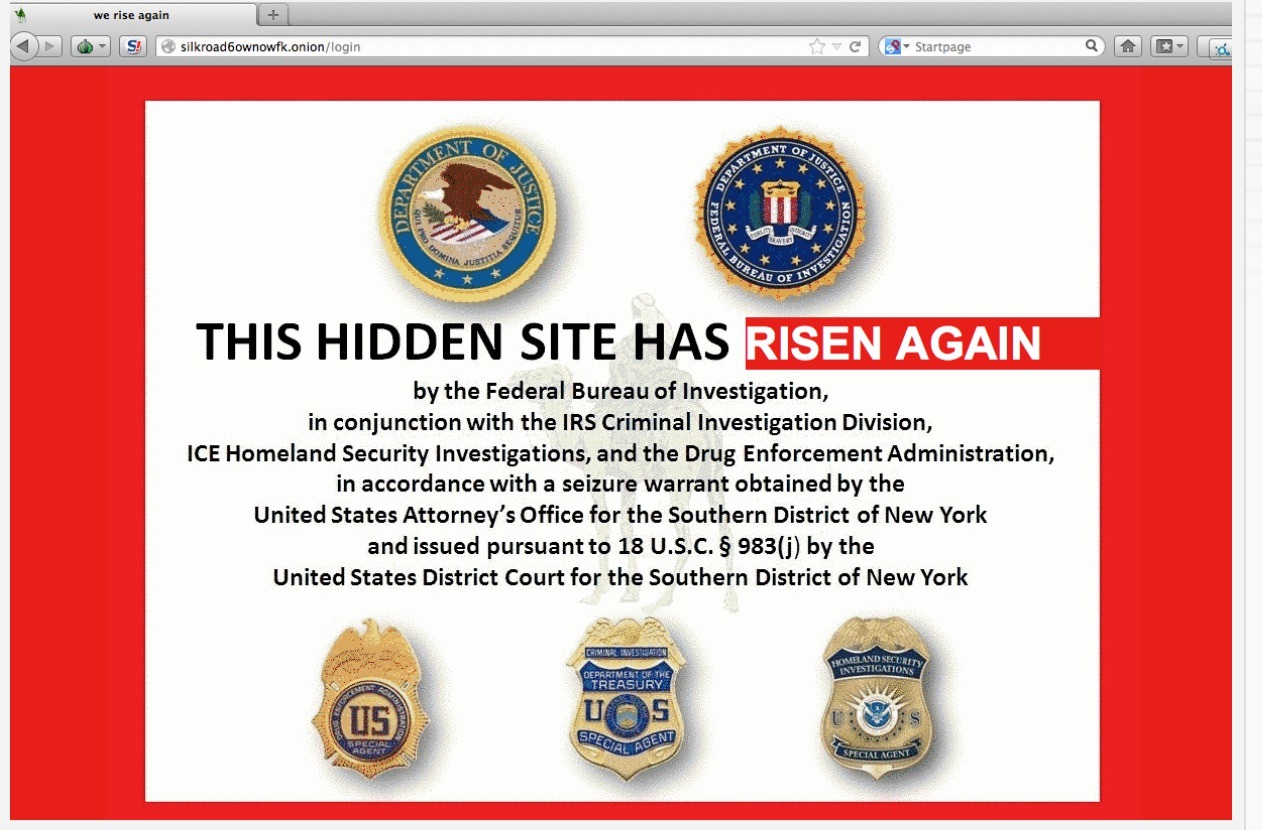An entrepreneur as professionally careful as the Dread Pirate Roberts doesn’t trust instant messaging services. Forget phones or Skype. At one point during our eight-month preinterview courtship, I offer to meet him at an undisclosed location outside the United States. “Meeting in person is out of the question,” he says. “I don’t meet in person even with my closest advisors.” When I ask for his name and nationality, he’s so spooked that he refuses to answer any other questions and we lose contact for a month.
All my communications with Roberts are routed exclusively through the messaging system and forums of the website he owns and manages, the Silk Road… “The highest levels of government are hunting me,” says Roberts. “I can’t take any chances.”
– From Forbes’ recent article on the Silk Road
Most of my readers have probably heard of the Silk Road. No, not the historical trade routes that linked Europe to Asia, but rather the online illegal drug marketplace accessible only via anonymity browsing software Tor, and where the only currency accepted is Bitcoin.
Those of you who have heard about it, probably know far less about the man that runs it. A character who only goes by the name Dread Pirate Roberts. He’s a character who usually stays firmly in the shadows for obvious reasons, but who has come out and done an excellent interview with Andy Greenberg of Forbes. What follows are some of the more interesting exchanges. From Forbes:
An entrepreneur as professionally careful as the Dread Pirate Roberts doesn’t trust instant messaging services. Forget phones or Skype. At one point during our eight-month preinterview courtship, I offer to meet him at an undisclosed location outside the United States. “Meeting in person is out of the question,” he says. “I don’t meet in person even with my closest advisors.” When I ask for his name and nationality, he’s so spooked that he refuses to answer any other questions and we lose contact for a month.
All my communications with Roberts are routed exclusively through the messaging system and forums of the website he owns and manages, the Silk Road. Accessing the site requires running the anonymity software Tor, which encrypts Web traffic and triple-bounces it among thousands of computers around the world. Like a long, blindfolded ride in the back of some guerrilla leader’s van, Tor is designed to prevent me–and anyone else–from tracking the location of Silk Road’s servers or the Dread Pirate Roberts himself. “The highest levels of government are hunting me,” says Roberts. “I can’t take any chances.”
By the measure of Carnegie Mellon researcher Nicolas Christin, Roberts’ eBay-like service was grossing $1.2 million a month in the first half of 2012. Since then the site has doubled its product listings, and revenue now hits an annual run-rate of $30 million to $45 million by FORBES’ estimate.
Roberts also has a political agenda: He sees himself not just as an enabler of street-corner pushers but also as a radical libertarian revolutionary carving out an anarchic digital space beyond the reach of the taxation and regulatory powers of the state–Julian Assange with a hypodermic needle.
Read more
Follow me on Twitter.




